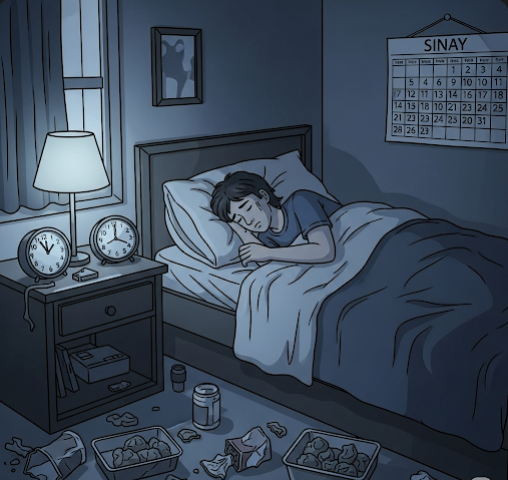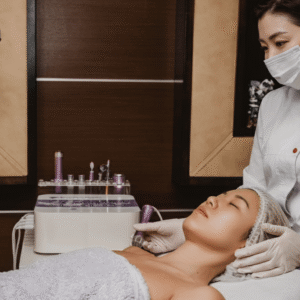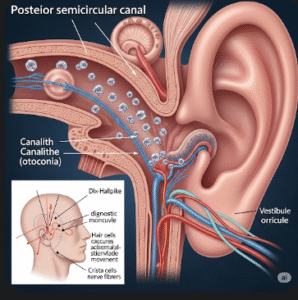Overview
Kleine-Levin Syndrome (KLS), often called “Sleeping Beauty Syndrome,” is a rare neurological disorder characterized by recurrent episodes of excessive sleepiness (hypersomnia) lasting days to weeks. During these episodes, affected individuals may sleep up to 20 hours a day and experience cognitive, behavioral, and mood changes. Though the exact cause remains unknown, KLS primarily affects adolescents and young adults. In Korea, specialized neurology clinics offer comprehensive evaluation, supportive care, and symptom management for patients living with this mysterious and debilitating syndrome.
What Is Kleine-Levin Syndrome?
Kleine-Levin Syndrome is a rare sleep disorder marked by periodic episodes of hypersomnia accompanied by cognitive dysfunction, behavioral abnormalities, and altered perception. Each episode may include excessive sleep, confusion, irritability, compulsive eating (hyperphagia), hypersexuality, and hallucinations. Between episodes, patients usually return to normal functioning with no symptoms. The syndrome is chronic and recurrent, with episodes lasting days to weeks and recurring every few months or longer.
Symptoms
During an episode, individuals with KLS may experience:
- Profound excessive sleepiness, often sleeping 15–20 hours per day
- Cognitive disturbances including confusion, memory problems, and difficulty concentrating
- Behavioral changes such as irritability, apathy, or disinhibition
- Compulsive overeating (hyperphagia) leading to rapid weight gain
- Hypersexuality or inappropriate sexual behavior in some cases
- Hallucinations or derealization (feeling detached from reality)
- Mood disturbances including depression or anxiety
- Difficulty waking up, even with stimuli
- Episodes usually last from several days to a few weeks
Causes
The exact cause of KLS remains unclear but several factors may contribute:
- Hypothalamic dysfunction affecting sleep-wake regulation and appetite
- Autoimmune mechanisms or inflammatory responses triggered by infections
- Genetic predisposition, though no specific genes have been identified
- Abnormalities in neurotransmitters such as serotonin and dopamine
- Possible viral or environmental triggers preceding episodes
Risk Factors
- Adolescents and young adults, particularly males, are most commonly affected
- Family history of KLS or other neurological disorders may increase risk
- Recent infections or immune challenges can precipitate episodes
- History of head trauma or neurological illness in some cases
Complications
- Significant disruption of daily life, including missed school or work
- Social isolation due to unpredictable episodes
- Risk of accidents or injury during episodes due to confusion and hypersomnia
- Emotional and psychological distress for patients and families
- Possible long-term cognitive or mood impairments in some patients
Prevention
- Avoidance of known triggers such as infections or excessive stress when possible
- Maintaining a regular sleep schedule and healthy lifestyle
- Early medical consultation at first signs of symptoms to manage episodes
- Patient and family education to recognize and cope with symptoms
Treatment Options in Korea
There is no definitive cure for Kleine-Levin Syndrome, but Korean neurologists provide various management strategies to reduce episode severity and improve quality of life:
- Symptomatic Treatment:
- Stimulants like modafinil or methylphenidate to reduce daytime sleepiness during episodes.
- Mood stabilizers or antidepressants may be used to manage behavioral symptoms.
- Antipsychotics for hallucinations or severe agitation in select cases.
- Supportive Care:
- Close monitoring during episodes with safety measures to prevent injury.
- Nutritional support for hyperphagia and weight management.
- Psychological counseling and family support services.
- Preventive Strategies:
- Some patients may benefit from lithium or other mood stabilizers to reduce episode frequency.
- Avoidance of infection and management of underlying health conditions.
- Multidisciplinary Approach:
- Korean clinics integrate neurology, psychiatry, sleep medicine, and rehabilitation specialists to provide holistic care.
- Patient education programs help families understand the condition and improve coping strategies.
Ongoing research and clinical trials in Korea contribute to better understanding and new therapeutic options for KLS.













